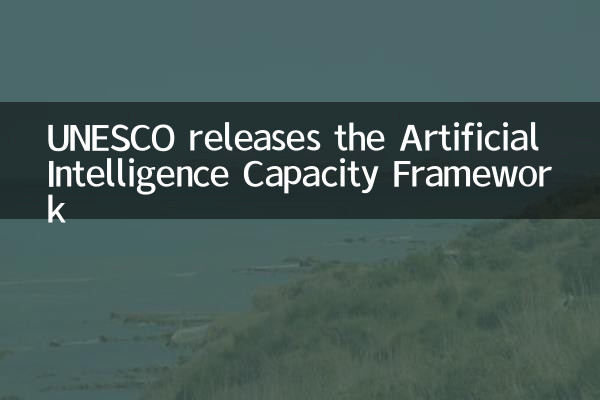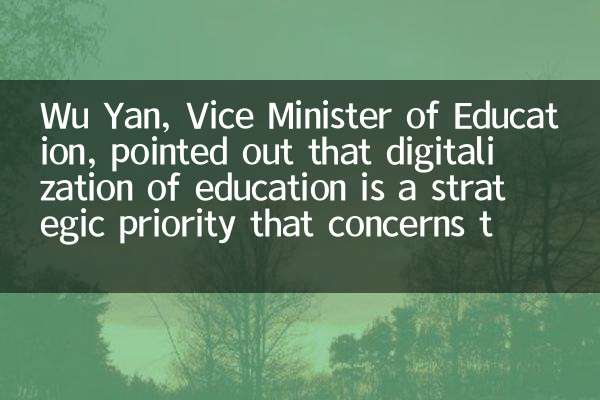UNESCO releases the Artificial Intelligence Competency Framework: Global education ushers in new changes
Recently, UNESCO officially released the AI Competency Framework, aiming to provide a guiding document on the cultivation of artificial intelligence literacy for the global education system. The release of this framework has quickly become a hot topic of concern to the international community, triggering extensive discussions among the education, science and technology and policy makers.
1. Analysis of the core content of the framework

The "Artificial Intelligence Competency Framework" proposes standardized requirements for artificial intelligence education from three dimensions: knowledge, skills and ethics, and is mainly aimed at learners from basic education to higher education. Here is the core structure of the framework:
| Ability dimension | Specific requirements | Applicable age group |
|---|---|---|
| Basic knowledge | Understand the basic concepts, algorithm principles and application scenarios of AI | Over 12 years old |
| Technical skills | Master basic programming, data processing and model training capabilities | Over 15 years old |
| Ethical literacy | Understand the social impact of AI, data privacy and algorithm bias issues | All ages |
2. Response from the global education community
After the release of the framework, education departments in various countries responded quickly. According to incomplete statistics, more than 30 countries have stated that they will include AI education in the national education system within the next three years. The following are the specific plans of some countries:
| Country/Region | Implementation Plan | schedule |
|---|---|---|
| EU | AI general courses are offered in primary and secondary schools | Before 2025 |
| Singapore | List AI as a compulsory subject in high school | Starting from 2024 |
| Brazil | Carry out national teacher AI training program | 2023-2026 |
3. Countermeasures of education and technology enterprises
With the release of the framework, global education technology companies have adjusted their product strategies. In the past week, many leading companies have announced new AI education product lines:
| Company Name | New Products | Target user |
|---|---|---|
| Coursera | Special courses for AI basic education | K12 teacher |
| Tencent Education | Teenagers AI Programming Laboratory | Students aged 8-16 |
| Google for Education | Generative AI teaching toolkit | Higher Education Institutions |
4. Expert views and future prospects
Educational technologist Maria Rodriguez pointed out: "This framework has established unified standards for global AI education for the first time, which will significantly accelerate the popularization of digital literacy education." At the same time, some scholars reminded the need to pay attention to the issue of educational equity and avoid the new digital divide caused by uneven allocation of technical resources.
According to UNESCO's plan, a global AI education assessment project will be launched in 2024, and the first batch of pilot projects will cover 15 countries. The project will focus on:
| Evaluation dimension | Indicator content | Source of data |
|---|---|---|
| Course coverage | The proportion of schools offered by AI courses | National Education Statistics |
| Teacher preparation | Number of teachers receiving AI training | School Investigation |
| Learning results | Student AI ability compliance rate | Standardized testing |
The release of the "Artificial Intelligence Competency Framework" marks the official entry of global education into the AI era. This change will not only reshape the teaching content and methods, but will also have a profound impact on the direction of future talent cultivation. With the gradual implementation of implementation plans of various countries, artificial intelligence literacy is expected to become one of the core competitiveness of citizens in the 21st century.

check the details